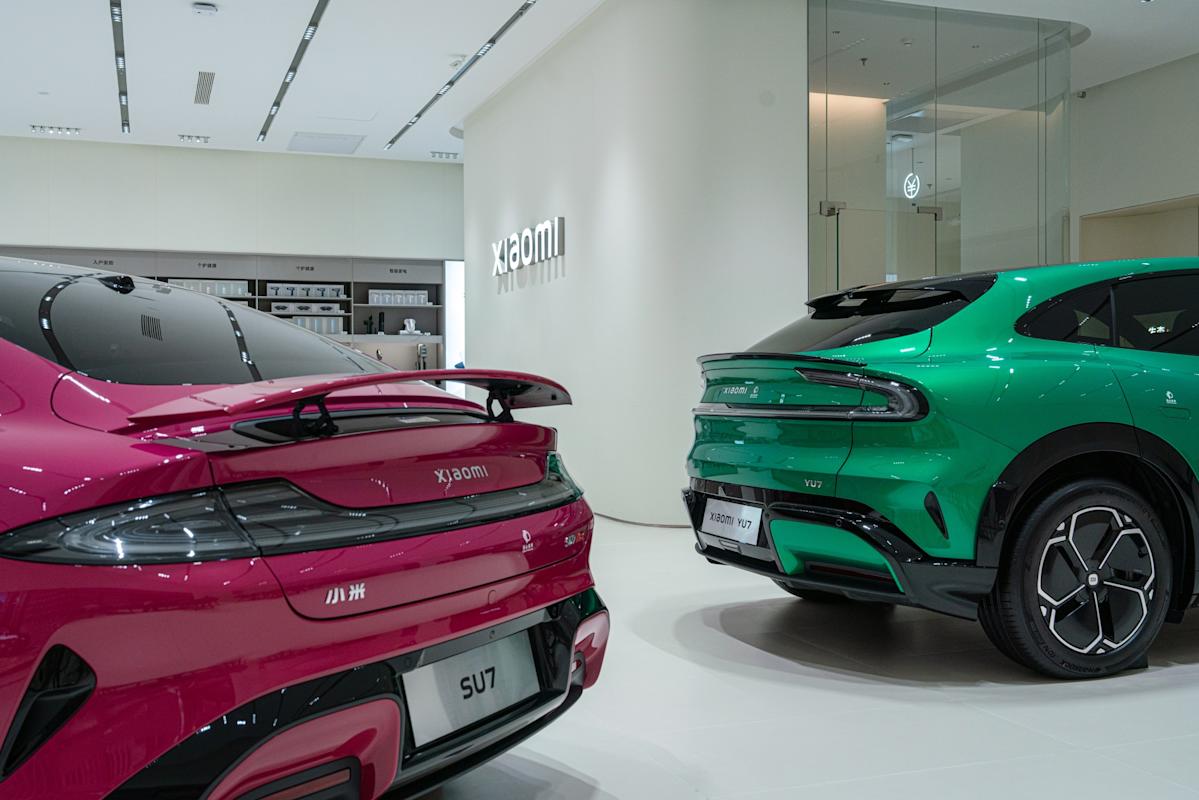Xiaomi’s EV Arm Makes a Profit for the First Time
(Bloomberg) — Xiaomi Corp. reported quarterly profit from its electric vehicle business for the first time, a major milestone for the smartphone maker’s ambitious foray into the crowded market.
Most Read from Bloomberg
The company’s EV division, which sold its first car last year, posted a profit of 700 million yuan ($98 million) in the September quarter. That reversed a loss of 300 million yuan in the previous three months, and helped the Beijing-based company more than double net income.
Xiaomi joins a select club of Chinese EV makers that actually make a profit. With a goal of becoming one of the world’s top five carmakers, the company is ratcheting up production to try and compete with the likes of Tesla Inc. and BYD Co. in China and eventually overseas. The company aims to start selling EVs in Europe in 2027.
While still early days, the result is a vindication of sorts for co-founder Lei Jun, who telegraphed the swing toward profitability earlier this year. The billionaire is riding high after a solid reception for Xiaomi’s first sports utility vehicle, which has garnered strong orders so far. On Tuesday, executives said the company will hit a 2025 target of 350,000 EV deliveries this week — more than a month ahead of schedule. It’s now ramping up efforts to boost deliveries and slash wait times.
Still, some investors have called Xiaomi’s longer-term outlook into question, citing intense competition, safety concerns and persistent factory delays.
Soaring demand and a production crunch have meant that buyers still have to wait up to nine months for some models after placing an order. In October, it said it shipped more than 40,000 EVs, the same figure it gave the previous month. And gross margins for the business will drop next year, executives said on Tuesday’s conference call.
What Bloomberg Intelligence Says
Xiaomi’s expectation for gross margin to narrow at its electric-vehicle business in 2026 — despite its SU7 and YU7 ranking among most popular EV models in China — underscores a more challenging outlook for the sector as a higher purchase tax kicks in next year. Domestic competition will intensify as demand growth slows. EV makers will become increasingly dependent on exports to drive volume and earnings growth, with BYD, Geely, Xpeng and Leapmotor setting the pace.
– Joanna Chen and Jason Zhao, analysts



Leave a Comment
Your email address will not be published. Required fields are marked *